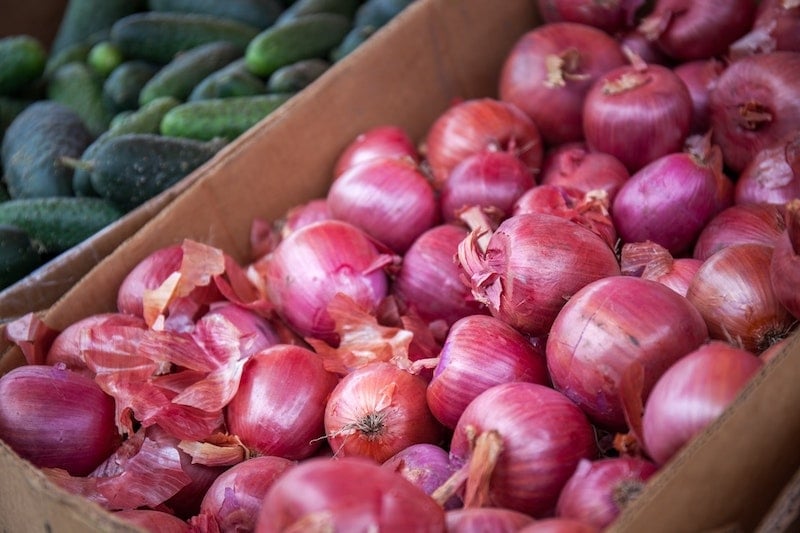I’ve been learning Spanish in my free time. As a Filipino, basic Spanish comes easy, partly because Filipino and Spanish share a lot of similar words, so that also means lesser efforts in memorising a new vocabulary. There are a lot of Filipino words derived from Spanish, which we have adopted due to our colonial history with Spain. Some Filipino words mean the exact same thing in Spanish, while many have been given new meanings.
But as my Spanish vocabulary grows, I continue to get surprised at how many more Filipino words are actually rooted in Spanish. Besides the obvious ones like the words to describe kitchenware, time, months, and days of the week, there are a lot more Spanish derivations that I and most Filipinos normally aren’t aware of anymore. Here’s a list of interesting Spanish-derived Filipino words!
Trivia: Tagalog is not to be mistaken as the national language of the Philippines. The national language of the country is Filipino. A more accurate way to put it is that Filipino is the standardised version of Tagalog, which along with Cebuano, is the Philippines’ most commonly used language out of the 120 to 180 languages that exist in the country.
1. O
Believe it or not, the Filipino word for “or” is also the Spanish term for “or.” So when Filipinos say “Kutsara o tinidor?” (“Spoon or fork?”), they’re speaking Filipino but they’re also speaking fluent Spanish, although maybe unbeknownst to them.
2. Masyado

Image credit: Joanna Kosinska
In Filipino, masyado means “too much.” This term originated from the Spanish word, demasyado, which also means “too much.” Over the years, Filipinos dropped the “de.”
3. Sibuyas

Image credit: Paul Magdas
The common word for “onion” in Southeast Asian countries is bawang, according to the Malay language. Bawang means “onion” in Malaysia, Indonesia, and Singapore; but in Filipino, bawang only means “garlic.”
The Filipino word for “onion” is sibuyas, which is a nod to the Spanish counterpart, cebolla (pronounced as “seboya” and in plural would be cebollas).
4. Tito/tita

Image credit: nci
In both Spanish and Filipino, tito and tita mean “uncle” and “aunt” respectively. Another version of these would be tío and tia, which have the same meaning in Spanish and Filipino as well.
5. Tsuper

Image credit: frank mckenna
Tsuper is the Filipino word for “driver,” but it derives from the Spanish word chofer which also means “driver.”
6. Bruha
If a Filipino calls you bruha, they’re either calling you a witch or someone who has very messy hair. But its literal translation is “witch,” just like the Spanish version bruja.
7. Ensayo

Image credit: Thao Le Hoang
In Spanish, ensayo means “rehearsal,” which is very similar to the Filipino word that mainly means “to practise” or “to train.” But depending on the context, ensayo may also mean “rehearsal” in Filipino.
8. Baka

Image credit: Christian Burri
In Filipino, baka has two different meanings: “maybe” and “cow.” For this item, we’re translating the word “cow.” Most Filipinos know that carne (meat) was derived from Spanish, but not a lot know that baka also roots from the Spanish word vaca, also meaning “cow.”
9. Kotse
Kotse means “car” in Filipino, similar to Spanish. However, in Spanish, it’s spelled as coche.
10. Basura
In both Spanish and Filipino, basura means “trash” or “garbage.”
11. Regalo

Image credit: Rob Laughter
In both Spanish and Filipino, regalo means “gift” or “present.”
12. Ayuda
In both Spanish and Filipino, ayuda means “help.” However, another Filipino word for “help” is tulong. Most of the time, ayuda in Filipino pertains to financial assistance.
You could shout “Ayuda! Ayuda!” in Spanish when calling out for help or if you need to be saved from drowning or a robber. But you can’t use ayuda in that type of scenario in Filipino; tulong is the more suitable word for it.
13. Maleta

Image credit: ConvertKit
In both Spanish and Filipino, maleta means “suitcase.”
14. Tsinelas
Tsinelas is the singular and plural Filipino word for “slipper” or “flip-flops.” In Spanish, it’s called chinela in singular form and chinelas in plural form.
15. Mansanas

Image credit: Gabriele Lässer
A mansanas a day keeps the doctor away. That’s the Filipino singular word for “apple.” However, it’s spelt as manzana in Spanish, and only becomes manzanas when in plural form.
16. Sige
Sige in Spanish specifically means “follow.” It became more nuanced in Filipino as it usually means “go ahead” or even “okay.”
17. Pwede
Pwede is the Filipino word for “possible.” It originated from the Spanish word puede which means “may” or “maybe.”
18. Merienda

Image credit: Hillshire Farm
In both Spanish and Filipino, merienda means “afternoon snack.”
19. Sweldo
Payday equals sweldo day! Figured it out by now? Sweldo is the Filipino word for “salary.” It is derived from the Spanish word sueldo, which means the same thing.
20. Gastos
In Filipino, gastos means “to spend”, “expense,” or “to waste.” This originated from the Spanish word gastar, which also means “to spend or waste.”
21. Laba

Image credit: Daniele Bissoli
Laba is the Filipino word for “to wash.” It’s derived from the Spanish word lavar meaning “to wash” as well.
22. Andar

Image credit: Yannes Kiefer
In Filipino, andar can mean to operate or start an activity, vehicle, or any type of running technology. It can also refer to progress given the right context. This word originates from the same Spanish word which means “to walk.”
23. Tipo
In both Spanish and Filipino, tipo means “type” (preference).
24. Baul
In both Spanish and Filipino, baul means “trunk.”
25. Unano

Image credit: Couleur
Filipinos say unano to pertain to very short and small things. It’s derived from the Spanish word enano which means “dwarf.”
Also read: 22 Legendary Filipino Snacks and Merienda You Should Try in the Philippines
Was this list of Spanish-derived Filipino words educational for you? Let us know which ones were a surprise and other Filipino words you want to share that are very similar to Spanish!
Featured image credit: Vernon Rainiel Cenzon | Unsplash




